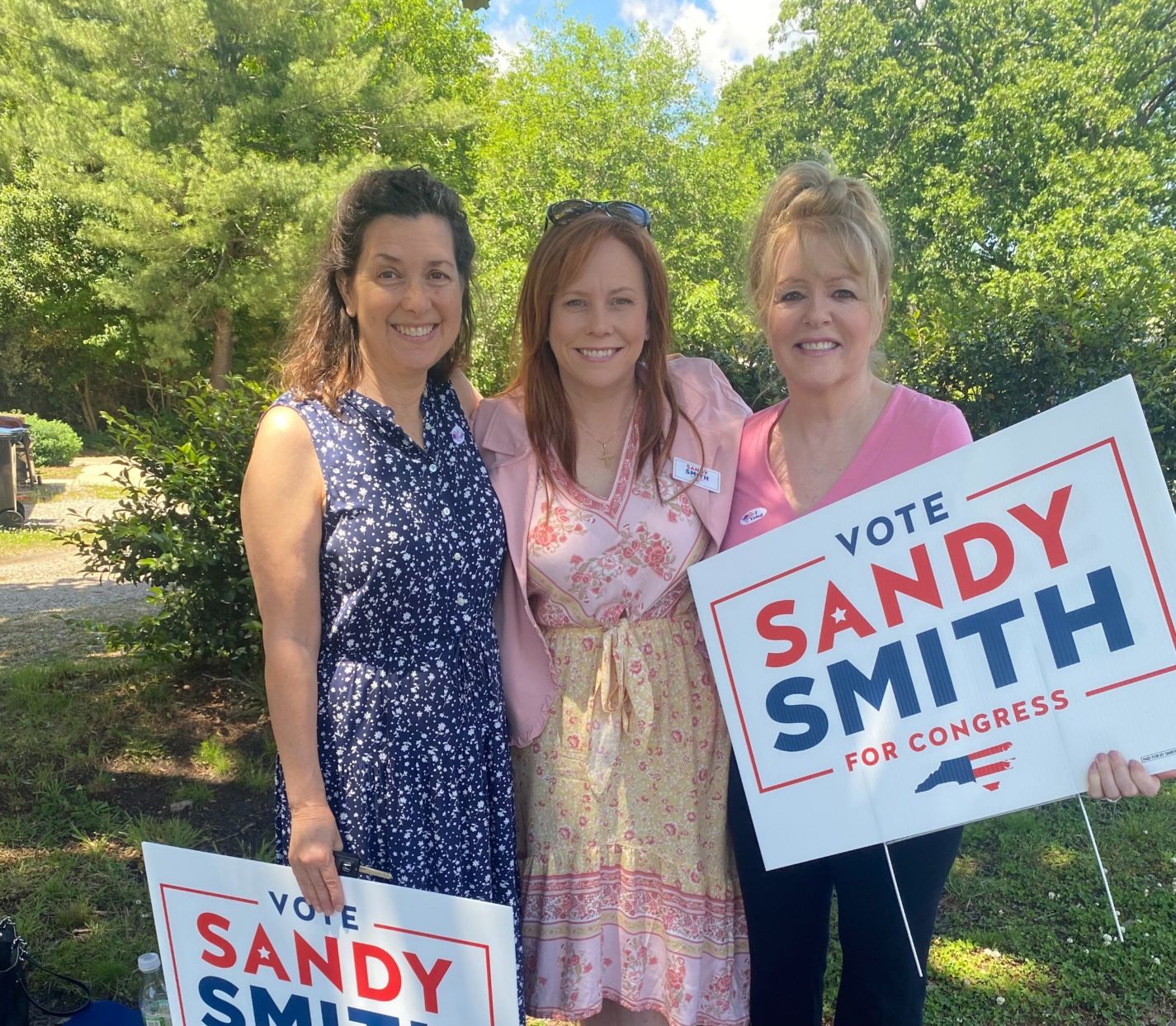- A change in N.C. law in 2017 ensures that a primary election candidate can win with just over 30% of the vote.
- The law helped five candidates, four Republicans and one Democrat, avoid the prospect of a primary runoff election in 2022.
Winning N.C. congressional primary candidates Chuck Edwards, Bo Hines, and Sandy Smith had good reasons to thank their campaign teams and voters Tuesday night. They also could have offered a note of thanks to the 2017 N.C. General Assembly.
That was the year state lawmakers lowered the threshold for candidates to win a primary election. When the leading candidate in a race secures more than 30% of the vote, he wins the contest. If no competitor in a multicandidate race crosses the 30% threshold, the second-place finisher is allowed to request a runoff.
Prior to the 2018 election cycle, a candidate needed to cross a 40% threshold to avoid the possibility of a runoff.
In one of North Carolina’s most closely watched primary contests Tuesday, Republican state Sen. Chuck Edwards secured 33% of the vote in an eight-candidate race for the GOP nomination in North Carolina’s 11th Congressional District. That was 1,319 votes more than embattled incumbent U.S. Rep. Madison Cawthorn. He secured 32% of the vote.
Session Law 2017-214 ensured that Edwards would emerge as the winner. He now moves on to face Democrat Jasmine Beach-Ferrara in the general election.

In the open 13th Congressional District, political newcomer Bo Hines secured 32% of the vote in an eight-person race for the Republican nomination. He moves on to face Democrat Wiley Nickel, a state senator from Wake County.

In the 1st Congressional District, 2020 Republican nominee Sandy Smith will get a second shot at a general election. She secured 31% of the vote in an eight-way Republican primary race. Having lost to incumbent Democrat G.K. Butterfield in the last election cycle, Smith now will face Democratic state Sen. Don Davis in a bid to succeed Butterfield.
Two other primary winners also benefited from the 2017 law. In the 6th Congressional District, Christian Castelli won 36% of the vote in a seven-person race. Incumbent Democrat Kathy Manning awaits Castelli in the general election. In the 7th Congressional District, Democratic state Rep. Charles Graham won 31% of the vote in a four-way contest for his party’s nomination. Graham faces incumbent Republican David Rouzer in November.
None of North Carolina’s congressional primaries will head to a runoff.
S.L. 2017-214 emerged from Senate Bill 656, the Electoral Freedom Act of 2017. In addition to lowering the vote threshold for a primary election victory, the act lowered the number of signatures required to form a new political party in North Carolina. It also eased the burden for new political parties already recognized in other states. The act lowered the number of signatures necessary for an unaffiliated candidate to secure ballot access.
The N.C. Senate approved the bill’s original version, without the primary voting threshold change, on a 49-0 vote in April 2017. The N.C. House added the threshold change and approved the bill, 107-7.
After negotiations between the two chambers, a compromise bill emerged in October 2017. It added a more controversial provision to abolish judicial primary elections in 2018.
That version of S.B. 656 passed along party-line votes. Just two N.C. House Democrats joined Republicans in supporting the measure as it secured a 70-44 vote. No Democrats supported the amended bill in the Senate, where it passed, 30-16.
Gov. Roy Cooper vetoed the measure. “This legislation abolishes a scheduled election and takes away the right of the people to vote for the judges of their choice,” Cooper wrote. The governor also mentioned his opposition to a proposed 2018 constitutional amendment “that will rig the system so that the legislature picks everybody’s judges in every district instead of letting the people vote for the judges they want.”
With veto-proof supermajorities in both legislative chambers, Republican lawmakers voted to override Cooper’s veto. Candidates faced the 30% primary victory threshold for the first time in 2018.
Voters rejected a proposed constitutional amendment that year that would have changed the process for filling judicial vacancies.